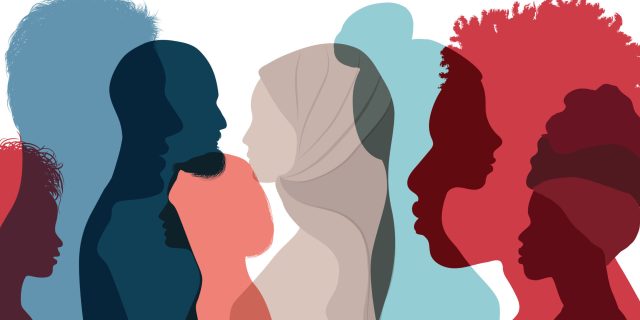Course summary
Practice Level: Intermediate
This course is part of a 4-course series on Human Sexuality As a central aspect of human identity, experience, and wellbeing, clinicians should understand sexuality as a part of holistic work across mental health disciplines. This series provides information about language, terms and definitions, and various human experiences that clinicians will encounter when working with clients in general and specifically related to sexual health. Clinicians can use the case examples presented throughout the learning material to reflect upon how their sexual identity, beliefs, and experiences may affect engagement with specific clients and inform their conceptualizations about areas of concern for clients. The courses in this human sexuality series are:
• Human Sexuality Across the Lifespan
• Fertility and Sexual Health Interviews
• Sexuality in Context and Sexually Transmitted Infections
• Sexual Disorders and Sex Therapy
For professionals seeking California licensure: Taken together, the four courses in this series meet the requirement for 10 hours of human sexuality training.
Human sexuality is a broad concept encompassing a wide range of clinically relevant information and concerns. This learning material provides a systems perspective and discusses such environmental influences on human sexual development, behavior, and experience as heterosexism and ableism, religious and cultural mores regarding sexual activity and expression, body image, sexual trauma, exposure to pornography, heterosexism, and sex work. Detailed exploration of existing research around the effect of these environmental factors on sexual development aid clinicians in applying these concepts to clinical intervention. Case examples throughout this material present clinical considerations regarding these influences to guide social workers, psychologists, marriage and family therapists, and counselors in considering how their own clinical practice might incorporate this information to best support and serve clients.
Another vital topic for clinicians to understand when considering human sexuality concerns is sexually transmitted infections (STIs). STIs are common and affect both the people who contract them and people who know about or consider them in their own sexual behaviors and practices. This learning material explains symptoms, potential complications, prevention, and treatment of STIs so that when clinicians work with clients experiencing or concerned about STIs, they can effectively support them with prevention and/or treatment efforts. As STIs are often stigmatized and misunderstood, it is critical that clinicians provide evidence-based and nonjudgmental information and guidance rather than cultural myths that perpetuate stereotypes and even STI transmission. The case examples in this learning material help guide clinicians through appropriate clinical intervention, including ways to ask and talk about STIs with clients in a way that helps rather than harms.
Course Format
This course contains downloadable online lessons (PDF) and a practice test. When you’re ready, purchase the course by clicking the “Add To Cart” button. This will let you take the test, complete the course evaluation and receive your certificate for CE credits.
Learning Objectives
1. Explain contexts in which individuals develop and experience sexuality.
2. Describe the effects of cultural, environmental, and societal narratives on sexuality and sexual function.
3. Identify common sexually transmitted infections.
4. Explain prevention strategies and treatment options for different sexually transmitted infections.
Course Syllabus
Introduction
Sexuality in Context: Cultural, Environmental, and Societal Influences and Narratives
- Heterosexism
- Body Image
- Ableism
- Early Sexualization
- Sexual Trauma
- Toxic Masculinity
- Purity Culture
- Pornography
- Reproductive Rights
- Sex Work
Sexually Transmitted Infections
- Chlamydia
- Gonorrhea
- Syphilis
- Human Papillomavirus
- Genital Herpes
- Human Immunodeficiency Virus
- Trichomoniasis
- Other Sexual Health Conditions
- Special Populations
Summary
Author
Jessie Timmons, LCSW
Jessie Timmons, LCSW, is a seasoned therapist and teacher of social work, as well as a practiced advocate for cultural humility and inclusive advocacy. She is a former faculty member of Temple University’s School of Social Work and is a current board member, having served two years as the board president for the Pennsylvania Society for Clinical Social Work (PSCSW). Her teaching and professional development have focused on ethical practice and in particular on making inclusiveness and affirmative advocacy an integral part of the ethical practice of social work and social work education.
Accreditation Approval Statements
CE4Less.com is approved by the American Psychological Association to sponsor continuing education for psychologists. CE4Less.com maintains responsibility for this program and its content.
CE4Less.com, provider #1115, is approved as an ACE provider to offer social work continuing education by the Association of Social Work Boards (ASWB) Approved Continuing Education (ACE) program. Regulatory boards are the final authority on courses accepted for continuing education credit. ACE provider approval period: 08/08/21-08/08/24.
Social workers completing this course receive 3 clinical continuing education credits.
CE4Less.com has been approved by NBCC as an Approved Continuing Education Provider, ACEP No. 6991. Programs that do not qualify for NBCC credit are clearly identified. CE4Less.com is solely responsible for all aspects of the programs.
Courses have been approved by CE4Less.com, as a NAADAC Approved Education Provider, for educational credits. NAADAC Provider #91345 CE4Less.com is responsible for all aspects of the programming.
We are committed to providing our learners with unbiased information. CE4Less never accepts commercial support and our authors have no significant financial or other conflicts of interest pertaining to the material.


